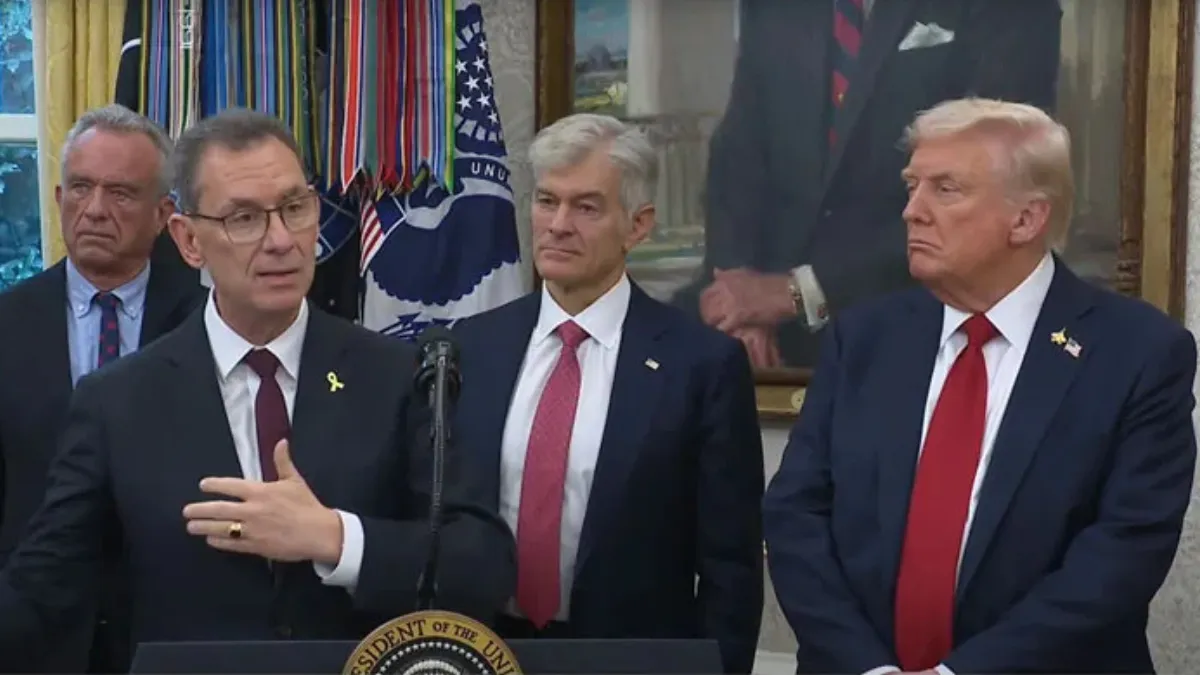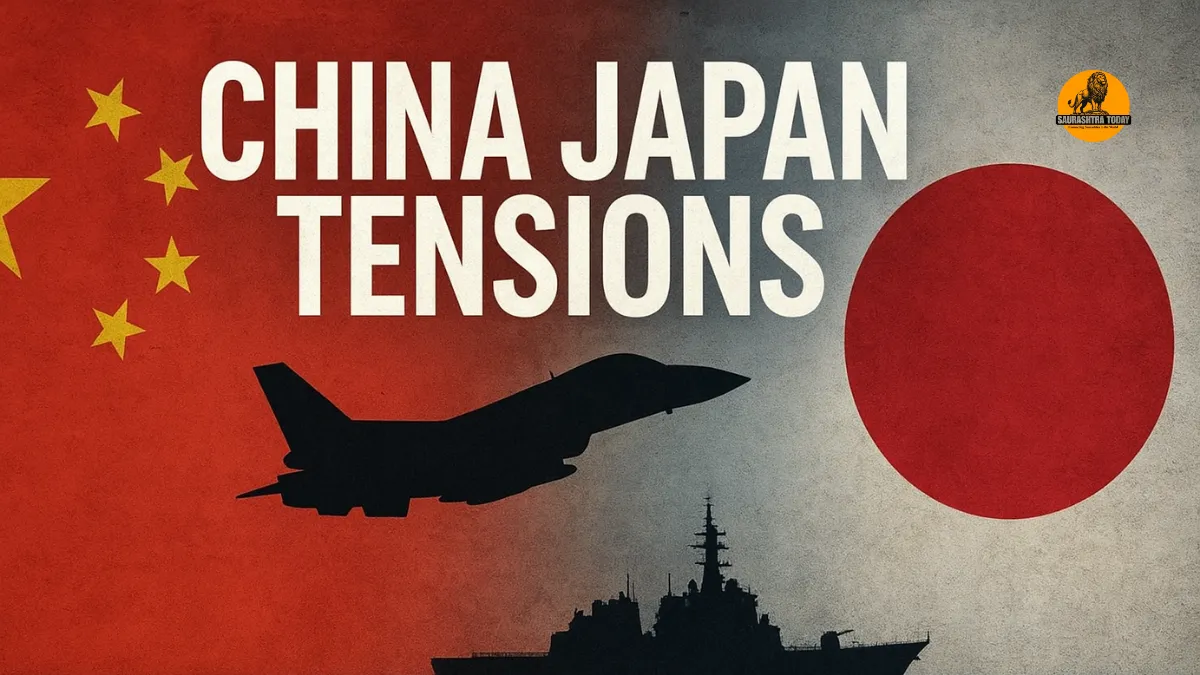TrumpRx is at the center of a sweeping new initiative announced by former U.S. President Donald Trump, aimed at slashing the cost of prescription medicines for Americans. In a major policy move, Trump unveiled plans for a direct-to-consumer website, TrumpRx, alongside a landmark agreement with pharmaceutical giant Pfizer to lower drug prices. The initiative marks one of the boldest steps yet to address the long-debated issue of high drug costs in the United States.
TrumpRx: A Direct-to-Consumer Pathway
At a press conference, Trump declared that the TrumpRx platform would allow Americans to find medicines at discounted rates, bypassing traditional supply chains that often inflate prices. The site is expected to launch in early 2026. However, officials clarified that TrumpRx will not directly sell or distribute drugs. Instead, it will act as a central hub where consumers can search for their prescribed medicines and then be redirected to manufacturers’ direct-to-consumer programs.
This model aims to cut out the middlemen — such as insurers and pharmacy benefit managers — who contribute to complex pricing structures. By simplifying access, the TrumpRx platform promises transparent pricing and potentially significant savings for patients.
The Pfizer Agreement: A Turning Point
Pfizer became the first pharmaceutical company to voluntarily comply with the demands laid out by Trump in a July letter to major drugmakers. As part of the deal:
- Pfizer will set the prices of new drugs at “Most Favored Nation (MFN)” levels, ensuring Americans pay no more than patients in peer countries.
- Many primary care medicines and selected specialty drugs will be offered on TrumpRx at an average 50% discount.
- The company will increase domestic manufacturing capacity, a step aimed at strengthening U.S. pharmaceutical independence.
- Pfizer will receive a three-year reprieve from certain tariffs on pharmaceutical imports, incentivizing its participation.
Trump hailed this as a “historic” win for American families, claiming it ends decades of global price manipulation. “The United States is done subsidizing the health care of the rest of the world,” he said.
What “Most Favored Nation” Pricing Means
The Most Favored Nation policy has been a cornerstone of Trump’s prescription drug agenda. Under this model, drug prices in the U.S. would be pegged to the lowest price available in other wealthy nations such as Canada, Germany, France, Italy, the United Kingdom, Switzerland, Denmark, and Japan.
In theory, this should lower prices in the U.S., where patients typically pay three times more for the same medications than those in comparable countries. The Department of Health and Human Services previously reported that Americans consistently shoulder higher costs due to the absence of government regulation in price setting.
Trump had unsuccessfully tried to enforce MFN pricing during his first term, but with TrumpRx and Pfizer’s cooperation, the effort is being revived.
Industry Reactions: Support and Skepticism
While Trump celebrated Pfizer’s compliance, industry experts remain divided on the true impact of TrumpRx. Critics argue that lowering list prices may not necessarily translate to lower out-of-pocket costs for patients, especially since insurance coverage, rebates, and pharmacy benefit managers complicate the pricing chain.
Some health policy analysts also raised concerns that if U.S. prices drop significantly, pharmaceutical companies may hike prices abroad to compensate, leading to global market shifts. Trump, however, dismissed such worries as “fair,” insisting that American patients should no longer bear the burden of subsidizing international healthcare systems.
Other Companies Exploring Similar Channels
Pfizer may be the first to fully embrace Trump’s model, but other companies are already experimenting with direct sales. For example:
- Novo Nordisk recently offered Ozempic, its diabetes drug, at $499 per month directly to U.S. patients who pay out of pocket — nearly half the listed price.
- The Pharmaceutical Research and Manufacturers of America (PhRMA) launched AmericasMedicines.com, a site connecting patients with companies’ direct-purchase programs.
PhRMA, in a statement, acknowledged Trump’s push for transparency, noting that manufacturers are beginning to respond by offering “no hidden markups, transparent pricing, and more convenient purchase options.”
Trump’s Executive Orders and Pressure on Pharma
The TrumpRx announcement follows months of mounting pressure on pharmaceutical executives. In May, Trump signed an executive order instructing drugmakers to offer American patients MFN-level prices or face penalties. When progress lagged, Trump escalated his approach by writing directly to the CEOs of 17 major pharmaceutical firms, including Pfizer, demanding compliance by a set deadline.
This strong-arm tactic appears to have yielded results with Pfizer, though it remains to be seen whether other companies will follow suit. Trump signaled optimism, saying more firms may soon announce similar deals.
Implications for Medicaid and State Budgets
Under the Pfizer deal, Medicaid — the government program providing healthcare for low-income individuals — will also benefit from MFN pricing. While Medicaid already enjoys steep discounts, this could save state and federal agencies billions in costs over time. However, since Medicaid patients typically pay little to nothing for prescriptions, the direct savings for enrollees may be limited.
Also read: Is America H-1B Visa Becoming Too Costly? Canada, Germany and UK See an Opportunity
Table: Key Highlights of the TrumpRx Initiative
| Feature | Details |
|---|---|
| Website Launch | Early 2026 |
| Website Function | Search portal; redirects to manufacturer direct-purchase programs |
| Partner Company | Pfizer (first to comply) |
| Average Savings | 50% on many primary care and specialty drugs |
| Pricing Standard | “Most Favored Nation” – lowest price among peer countries |
| Tariff Impact | Pfizer granted 3-year reprieve on certain import tariffs |
| Domestic Manufacturing | Pfizer to expand production facilities in the U.S. |
| Medicaid Effect | State and federal governments to save money; patients see minimal change |
Public and Political Response
TrumpRx has stirred debate not just within the pharmaceutical industry but also in political circles. Supporters argue that Trump is finally addressing a problem that previous administrations largely ignored: the soaring cost of prescription drugs.
Opponents, however, see the initiative as a populist move that may not deliver meaningful relief. Some Democrats accuse Trump of prioritizing corporate deals over systemic reform, while others argue that lasting change requires broader legislation targeting insurance companies and pharmacy benefit managers.
Also read: Donald J. Trump Returns to the White House: A New Era for America
Looking Ahead: Can TrumpRx Deliver?
The success of TrumpRx hinges on whether other drugmakers join Pfizer in offering substantial discounts and whether patients feel tangible relief in their wallets. The pharmaceutical supply chain is notoriously complex, and while TrumpRx may bypass certain intermediaries, it does not address every layer of cost.
Still, the move has sparked momentum. By tying U.S. prices to global standards and forcing direct-to-consumer transparency, Trump may have set a precedent that future administrations cannot easily ignore.
Also read: Trump Tariffs Movies: What It Means for Hollywood and Global Film Industry
Conclusion
The launch of TrumpRx and the Pfizer agreement represent a bold attempt to tackle one of America’s most pressing healthcare issues: prescription drug affordability. While the initiative has raised hopes, it also invites questions about long-term viability, global repercussions, and whether other pharmaceutical giants will participate.
For now, TrumpRx stands as a symbol of a broader push for drug pricing reform. Whether it delivers on its promises will be closely watched by patients, policymakers, and the pharmaceutical industry alike.

















